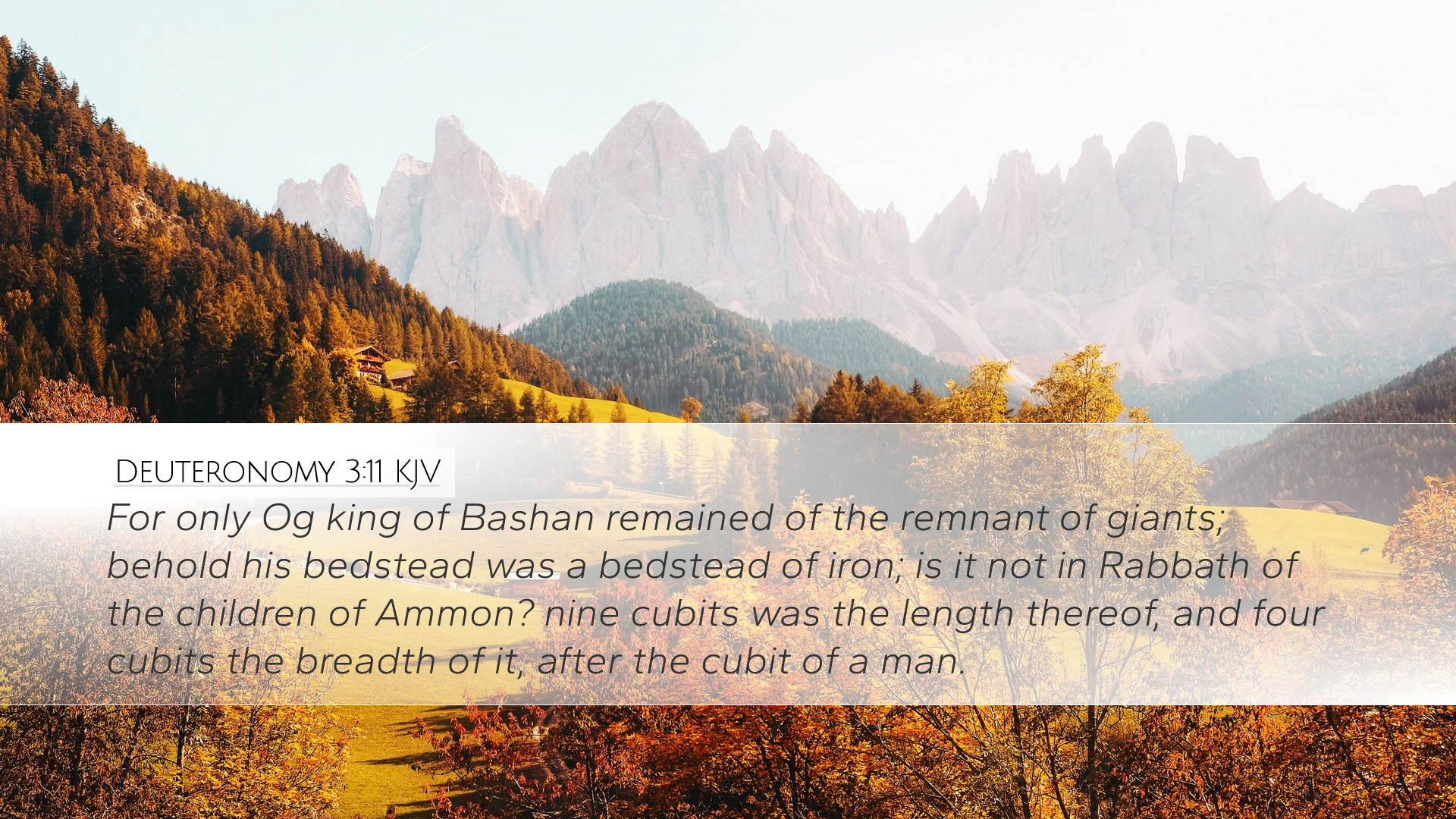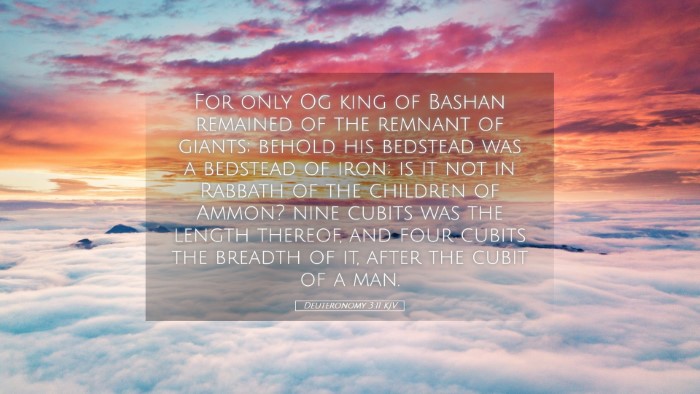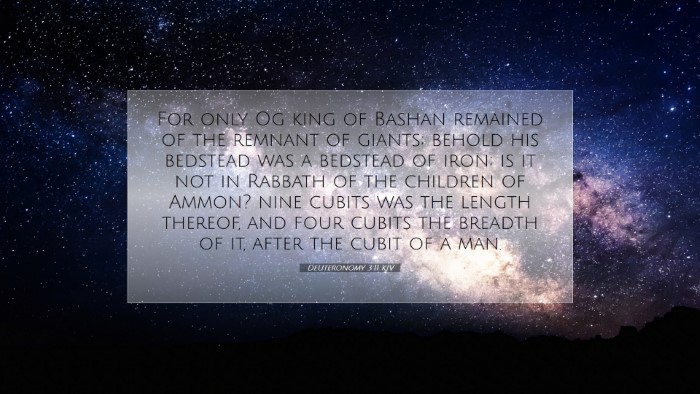Commentary on Deuteronomy 3:11
Deuteronomy 3:11 states: "For only Og king of Bashan remained of the remnant of the giants; behold, his bedstead was a bedstead of iron; is it not in Rabbath of the children of Ammon? nine cubits was the length thereof, and four cubits the breadth of it, after the cubit of a man."
Introduction
This verse provides crucial insights into God's sovereignty and power over nations and formidable adversaries. The reference to Og, a king of immense stature and strength, serves as a backdrop for God's deliverance and the assurance of victory over even the most daunting foes.
Historical Context
In order to grasp the full meaning of Deuteronomy 3:11, one must understand the historical context in which it is situated. The Israelites, led by Moses, were in the process of conquering the land of Canaan. This included vanquishing several kings and their territories, which were marked by formidable fortresses and giants. Og, the king of Bashan, was infamous for his gigantic stature, being one of the last of the Rephaim, a race known biblically for their size and prowess in battle.
Insights from Commentaries
-
Matthew Henry:
Henry emphasizes the unique stature of Og as a symbol of the enemies of God's people. He notes that Og’s very existence posed a serious threat to Israel, yet God’s act of delivering Israel from him showcases His power. Henry highlights that God's power is made perfect in the face of human weakness, indicating that the mightiest of foes can be overcome by divine intervention.
-
Albert Barnes:
Barnes draws attention to the description of Og’s bedstead as being made of iron, which serves as an indication of both the king's wealth and the terror he inspired. This bedstead, measuring nine cubits long and four cubits wide, signifies the physical enormity of Og, which was a reflection of the spiritual battle that the Israelites faced. Barnes makes the point that despite Og's stature and strength, his defeat was a result of God’s promise to Israel that they would inherit the land.
-
Adam Clarke:
Clarke discusses the implications of Og's defeat from a theological standpoint. He expounds on the significance of the 'bedstead of iron,' interpreting it as a metaphor for the devil's strongholds that appear insurmountable to believers. Clarke suggests that just as Og was vanquished, so too can believers overcome spiritual giants in their lives through faith in God. He articulates that the 'cubits' used in measurements signify God's precise and intentional design, equipping believers with confidence in their spiritual journey.
Theological Reflections
Several theological themes emerge from Deuteronomy 3:11 that are central to the Christian faith:
-
The Power of God:
This verse highlights God's supreme power over the mightiest of adversaries. The very existence of Og, who stood as a representation of human strength and defiance against God's people, serves as an illustration that no opposition can stand against God's will.
-
Divine Assurance:
God’s promise to Israel is reaffirmed through the defeat of Og. This aspect can be comforting to believers today who face seemingly insurmountable challenges. The same God who delivered Israel is present and active in the lives of believers, advocating for victory over their spiritual battles.
-
Legacy of Faith:
The memory of Og and his defeat serves as a historical reminder for future generations, encouraging a legacy of faith and trust in God's overarching plan. It serves as a narrative that links the history of Israel with God's continual guidance and intervention.
Applications for Today
For pastors, students, theologians, and Bible scholars, the insights derived from Deuteronomy 3:11 can be applied in various ways:
-
Teaching and Preaching:
This verse exemplifies the decisive action of God in history, which can be a stirring point in sermons about faith and reliance on God's power during trials.
-
Spiritual Warfare:
Understanding the implications of facing spiritual giants is crucial for personal growth and collective congregational strength. This text can encourage discussions around practical steps for overcoming personal and communal challenges through prayer and faith.
-
Historical Study:
The mention of Og provides an opportunity for deeper historical and theological research into the practices and cultures of ancient Near Eastern giants, enriching the understanding of biblical narratives.
Conclusion
Deuteronomy 3:11 encapsulates a pivotal moment in Israel's history, serving as a reminder of God's dominion over even the greatest of earthly powers. By studying the insights from public domain commentaries, we can glean meaningful applications for our lives, fostering a deeper appreciation for God's faithfulness and strength in the face of adversity.


